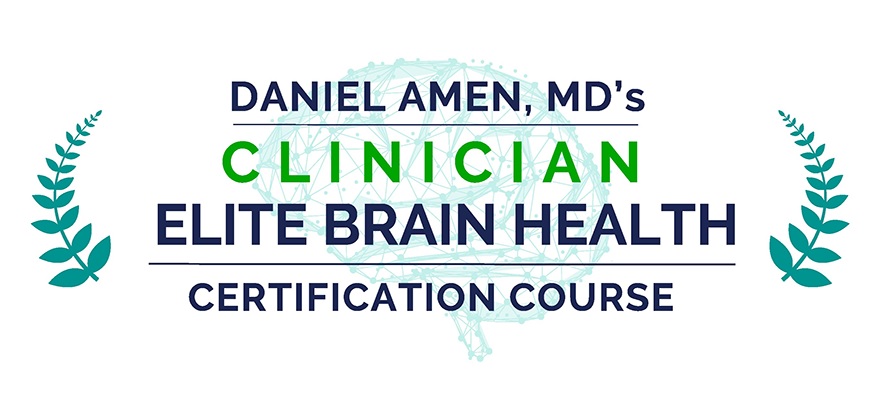
Maybe you were the kid who watched people more than TV, always asking why they did what they did. Maybe you are the friend everyone calls when life gets messy, or the person who keeps a stack of psychology books on the nightstand for fun. If you feel pulled toward understanding minds and helping people grow, it is natural to wonder whether you could turn that interest into your life’s work.
The good news is that psychology is not a single narrow path. It is more like a tree with many branches: clinical work, coaching, research, teaching, brain health, organizational consulting, and more. The challenge is figuring out which branch fits you, and what steps can take you from curiosity to a real, sustainable career.
Here we walk through how to turn a passion for psychology into a fulfilling career, with a special look at how brain health and neuroscience informed roles are opening new doors.
Contents
- Start By Clarifying What You Actually Love About Psychology
- Understand The Main Paths In Psychology-Related Work
- Map Out The Training You Need (And The Training You Do Not)
- Bring Psychology To Life In Your Everyday World
- Consider Building A Career Around Brain Health
- Design A Career That Fits Your Life, Not Just Your Resume
- Your Next Step Toward A Psychology-Based Career
Start By Clarifying What You Actually Love About Psychology
“I like psychology” can mean many different things. Before you commit to a career path, it helps to be specific about which parts light you up.
Are You Drawn To Helping People One On One?
If your favorite moments are listening to someone’s story and helping them make sense of it, you may lean toward roles like therapist, counselor, coach, or brain health clinician. These paths usually involve developing strong communication skills, emotional presence, and practical tools for change.
Do You Love Ideas, Theories, And Data?
Some people fall in love with psychology through research. They enjoy experiments, statistics, and studying how behavior works at a broader level. If that is you, careers in academic research, program evaluation, or data analysis might be a good fit.
Are You Fascinated By The Brain Itself?
Maybe what grabs you most is the biology behind thoughts and feelings. You might be drawn to brain imaging, neuropsychology, brain health education, or neuroscience informed coaching. These areas often blend psychology with more medical or scientific content.
There is no right answer here. The point is to notice which descriptions make you feel curious and energized. That is your internal compass starting to point in a direction.
Understand The Main Paths In Psychology-Related Work
Once you know what you enjoy, it helps to understand the main categories of roles that use psychology in different ways.
Licensed Mental Health Professions
These roles include psychologists, counselors, marriage and family therapists, clinical social workers, and psychiatrists. They involve formal education, supervised training, licensure, and ongoing continuing education.
If you want to provide therapy, diagnose mental health conditions, or treat serious psychological concerns, this is often the route you will consider. Within these roles, you can still specialize, for example in trauma, children, brain health, or neuropsychology.
Coaching And Non-Clinical Helping Roles
Coaching, mentoring, and certain wellness roles use psychology principles to help people reach goals, build habits, or improve performance. They generally do not diagnose or treat mental disorders.
These paths can offer more flexibility in training and practice structures. Many coaches and wellness professionals deepen their work with additional education in areas like brain health, positive psychology, or behavior change.
Applied Psychology In Organizations And Schools
Psychology is also used to shape workplaces, schools, and communities. Organizational consultants, HR professionals, school counselors, and program designers all rely on psychological insight to support people at scale.
If you like the idea of improving systems as well as individual lives, this kind of applied work might suit you.
Education, Outreach, And Brain Health Advocacy
Some people build careers centered on teaching psychology and brain health to the public. They create courses, write articles, speak at events, or design online programs that translate science into everyday language.
This kind of work is especially important in brain health, where many people are eager for clear, trustworthy guidance about protecting and improving their brain function.
Map Out The Training You Need (And The Training You Do Not)
A common mistake is assuming that every psychology related career requires the same long list of degrees. In reality, different paths call for different levels of formal education and advanced specialization.
Degrees And Licensure For Clinical Paths
If you imagine yourself as a therapist, psychologist, or psychiatrist, you will need to research local requirements for licensure. This usually includes a bachelor’s degree, a graduate degree (master’s or doctorate), supervised hours, and licensing exams.
Within that path, you can later pursue advanced certifications, such as brain health clinician training, trauma specialties, or specific therapy models. These post-licensure programs help you build a niche and deepen your expertise.
Shorter Training For Coaching And Brain Health Education
If you are more drawn to coaching, wellness, or education roles, you may choose a different mix of training. Many people start with foundational courses in coaching skills, motivational interviewing, or behavior change, then add specialized education in areas like brain health or neuro-informed approaches.
For some, this eventually includes advanced brain health certifications designed for helping professionals, especially if they want structured frameworks and a strong credential in this area.
Continuous Learning As A Core Habit
No matter which path you choose, psychology related work is not something you learn once and then forget. New research on the brain, trauma, resilience, and behavior emerges regularly.
Building a habit of ongoing learning through books, workshops, and formal programs will keep your career feeling fresh and your skills relevant.
Bring Psychology To Life In Your Everyday World
A fulfilling psychology related career is not built only in classrooms. It grows as you practice noticing, listening, and applying what you learn with real people.
Start Where You Are
You can begin using psychology skills in your current environment. If you are a student, that might mean joining mental health clubs, volunteering on helplines, or helping with research projects. If you are already working, you could bring psychology informed communication and brain aware stress strategies into your team.
Pay Attention To What Feels Fulfilling (Not Just Impressive)
As you collect experiences, notice which activities leave you feeling energized and which ones drain you. Do you love one on one conversations, group education, behind the scenes planning, or big picture strategy?
Those signals matter. Over time, they can point you toward a career that fits not only your interests, but also your nervous system and personality.
Learn To Explain Complex Ideas Simply
One of the most valuable skills in any psychology related role is the ability to translate complex concepts, especially brain concepts, into everyday language. Whether you are talking to a patient, a coaching client, a classroom, or a boardroom, clear explanations build trust.
Practicing this skill early will serve you in any path you choose. It is also a key strength for anyone who wants to specialize in brain health, where people are often intimidated by scientific language.
Consider Building A Career Around Brain Health
One exciting area where psychology and real-world need meet is brain health. People are increasingly aware that their mood, memory, focus, and long-term independence are all tied to the health of their brain. They are looking for guides who can help them understand and support that organ.
Why Brain Health Is A Growing Opportunity
Brain health sits at the intersection of psychology, medicine, and lifestyle. It involves understanding how stress, sleep, nutrition, movement, and emotional experiences shape the brain over time.
Professionals with solid brain health training can support individuals struggling with brain fog, mood issues, attention problems, or concerns about aging. They can also teach brain friendly habits to families, workplaces, and communities.
Ways To Specialize In Brain-Focused Work
Depending on your background, you might:
- Train as a mental health clinician, then add advanced brain health certification to your practice.
- Work as a coach or educator and specialize in brain friendly habits, brain based stress management, or cognitive wellness programs.
- Combine research interests with brain health by focusing on prevention, resilience, or recovery topics.
In each case, you are taking your passion for psychology and giving it a clear, brain centered focus that is in high demand.
Design A Career That Fits Your Life, Not Just Your Resume
Turning a passion for psychology into a career is not only about choosing a title. It is about designing a work life that fits your values, energy, and long term goals.
Some people thrive in full time clinical roles. Others prefer part time practice combined with teaching, writing, or online programs. Some build brain health specialties inside existing healthcare systems. Others create community based or digital offerings to reach people who might never set foot in a traditional clinic.
The more you understand your own brain and your own needs, the easier it becomes to choose a path that you can sustain over many years.
Your Next Step Toward A Psychology-Based Career
If you feel a steady pull toward psychology and brain health, you do not have to figure everything out at once. Your next step might be as small as taking an introductory course, talking with someone who works in a role you admire, or volunteering in a setting where people receive support.
As you take those steps, pay attention to what makes you think, “Yes, more of this.” Over time, those moments will help you choose the right mix of education, experience, and specialization. For some, that may include advanced brain health training or certification that turns a general interest in psychology into a focused, powerful way of serving others.
Psychology is not just about textbooks and theories. It is about real people, real brains, and real change. If that excites you, there is room for you in this field. Your curiosity can become the foundation of a career that supports both your mind and the minds of those you are called to help.

